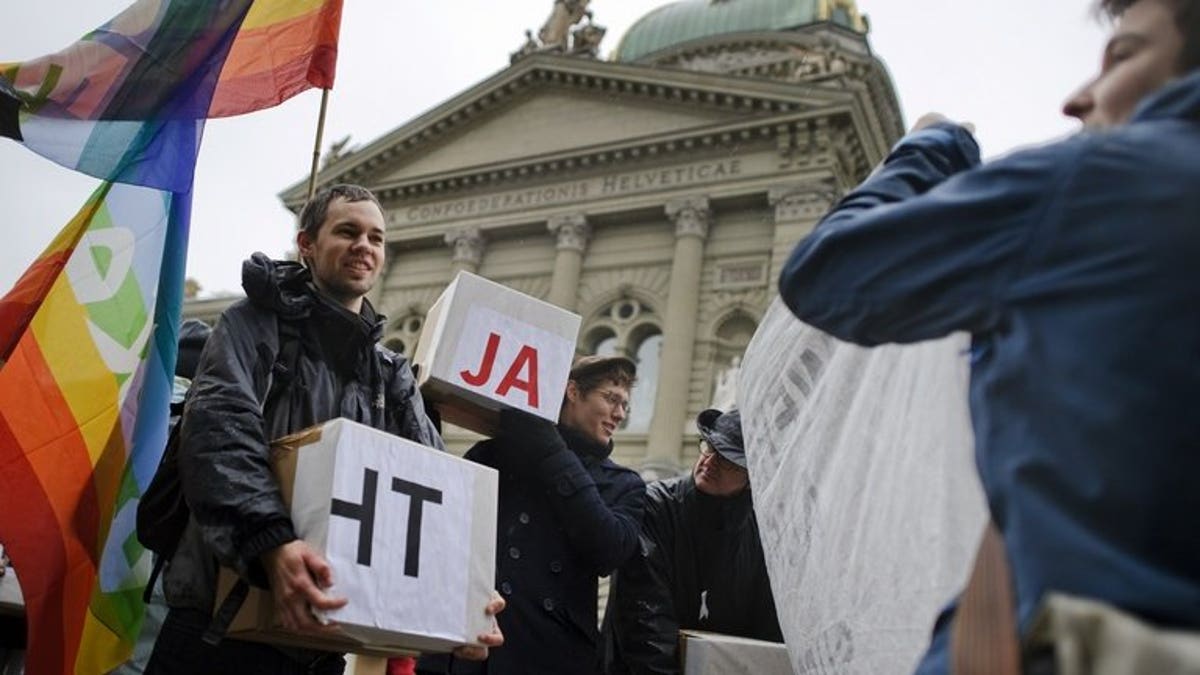
Members of the group for Switzerland Without an Army hold boxes with signatures collected for a popular initiative to end military conscription, outside of the Swiss House of Parliament on January 5, 2012 in Bern. The Swiss government on Friday urged voters to maintain the country's compulsory military service when they head to the polls next month for a referendum on the issue. (AFP/File)
GENEVA (AFP) – The Swiss government on Friday urged voters to maintain the country's compulsory military service when they head to the polls next month for a referendum on the issue.
If the Swiss approve a motion to end conscription in the September 22 vote, they will be putting Switzerland "in great peril," the government warned in a statement.
It said that without compulsory service the Swiss military "will no longer be able to fulfil its current tasks," pointing out that what gets done will depend on how many "skilled people volunteer to serve in the army."
The motion to be voted on next month, calling for the "repeal of obligatory military service," was launched by a group advocating the end of the Swiss army, GSSA.
The group, which since the late 1980s has pushed through several defeated votes on Swiss conscription, gathered the more than 100,000 signatures needed to put the issue to a new popular vote.
In neutral Switzerland, military service is obligatory for all men, who after their initial training lasting roughly five months, are asked to serve several weeks each year with the militia army until the age of 34 in most parts of the country, but in some cases up to 50.
Women can volunteer to serve, but GSSA insists the system that requires the participation of only half of the population is inherently unfair.
Conscription is "a relic of the Cold War," the group argues, pointing out that most European countries have done away with bloated military structures and urging the Swiss to do the same.
Swiss President Ueli Maurer, who also serves as the country's defence minister, is meanwhile an adamant supporter of the existing system.
"I am really proud. The Swiss army has been adapted to the most current needs," he said in the statement.
The government stressed that conscription "is a principle heavily anchored in the Swiss political institutions," maintaining that "serving is a duty that comes with citizenship."
Bern emphasised the important social role military conscription plays in the small Alpine nation, split into 26 cantons with four official languages.
Military service "teaches (people) how to live and work with compatriots from all regions, all linguistic groups and all social strata," the statement said, arguing that "this contributes enormously to the national cohesion."
While acknowledging that a professional army would be less expensive than the current system, the government stressed that the savings would come "at the cost of poorer performance."
The Swiss military also contributes to the country's booming economy, the government said, pointing out that the army places orders worth 2.5 billion Swiss francs ($2.7 billion, 2.0 billion euros) with local companies each year, and dishes out 1.4 billion in salaries.
